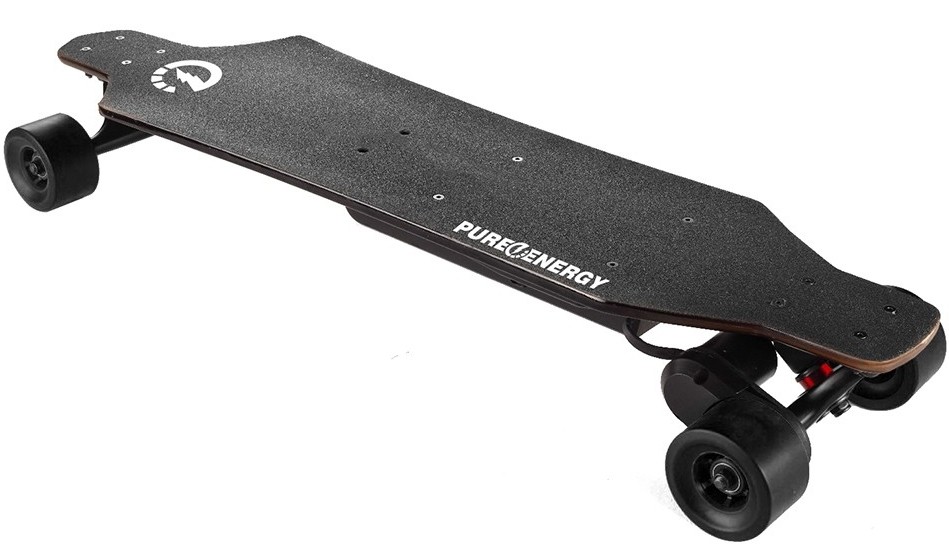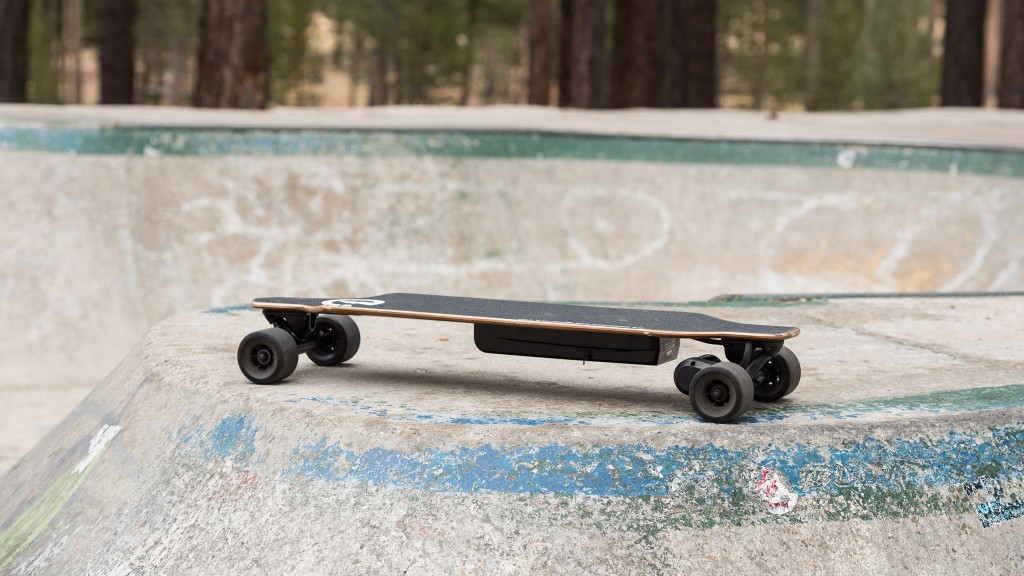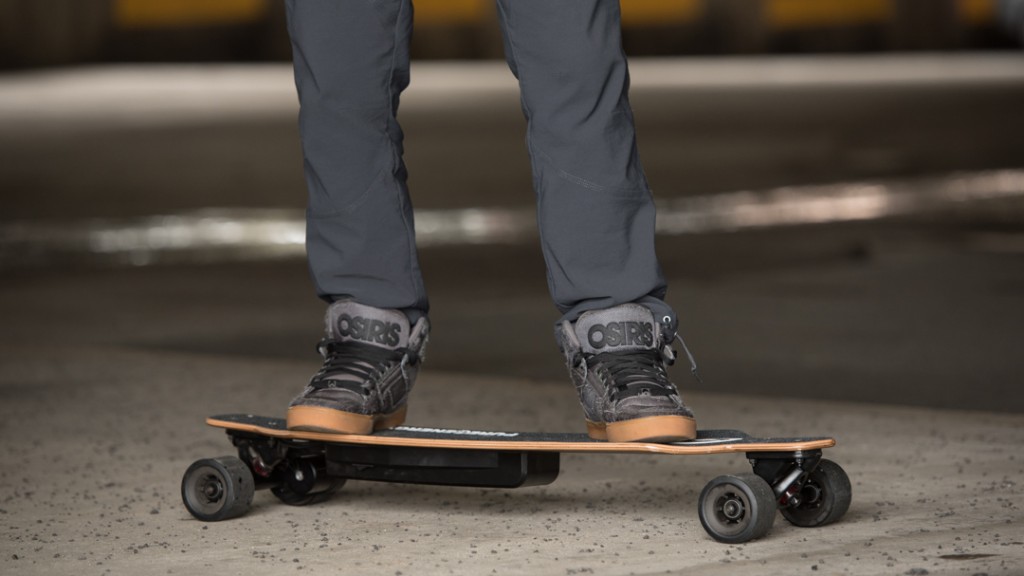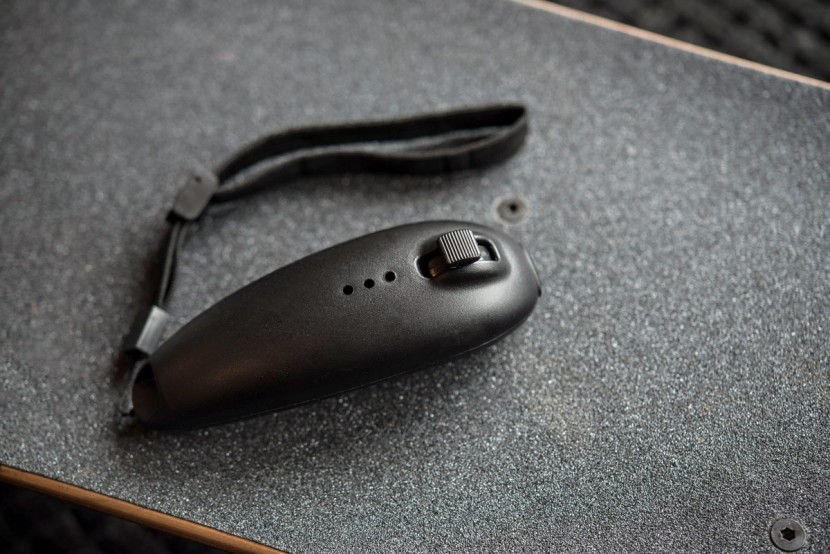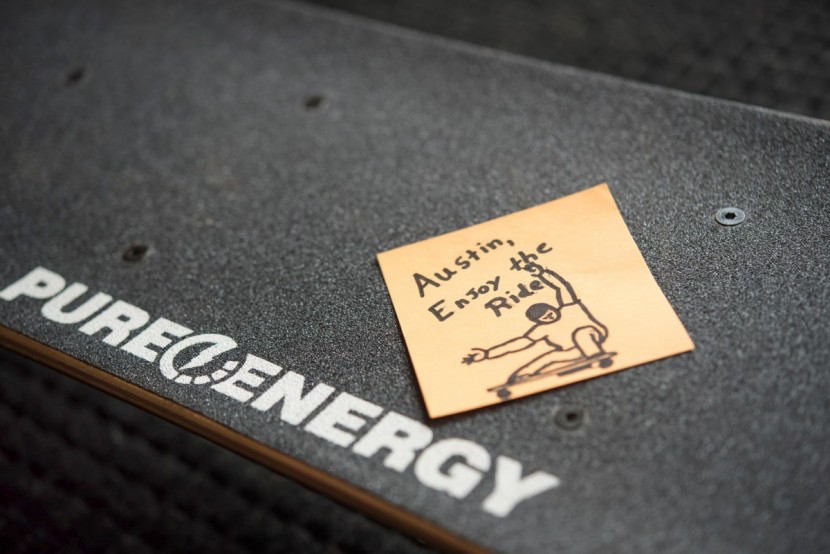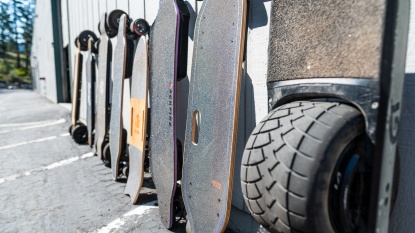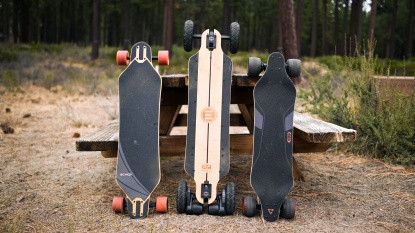Pure Energy Electric Longboard Review
Our Verdict
Our Analysis and Test Results
This board delivered a mediocre performance across the board, particularly faltering at climbing hills. This board was stymied by the smallest hills, and wasn't very comfortable to ride around, mainly due to it being harder to make right turns than left ones.
We subjected these board to a barrage of tests, and as mentioned above, the Pure Energy didn't impress us that much. We split up our testing procedure into 6 weighted metrics, with a handful of tests and evaluations under each. The following sections describe where the Pure Energy did alright, and where it didn't.
Speed
This set of tests were simple in execution, but quite telling in results. We conducted a top speed test, as well as an acceleration test. The Pure Energy did slightly below average, earning a 4 out of 10 for this metric. We clocked it in at 15.27 mph in our top speed, putting it roughly in the middle of the pack.
This board did worse on our acceleration test, where we timed how long it took the board to complete a 50' track from a stationary start. It appeared to draw too much power, and would cut out repeatedly, forcing us to let off and re-throttle it.
Range
Improving slightly on its speed performance, the Pure Energy earned a 5 out of 10 for its range. This board made it 12.1 miles before quitting.
This board slowed down for the last two miles of the test, and takes 4 hours to charge a fully depleted battery — a decently long time compared to the other models.
Ride
This metric's score was based on how comfortable the board was, whether or not we were drawn to it, and how it handled cracks and bumps in the road. The Pure Energy didn't really excel in this, earning a 4 out of 10. This model handled cracks similar to a normal longboard, but felt very sketchy on rougher pavement. It would vibrate, shake, rattle, and roll to the point that we were concerned about the board breaking on us. This board felt acceptable to ride, but the quirk of struggling to turn right proved quite annoying, and led us to slightly shun this board.
Hills
It didn't do them. We found that this board maxed out on a 3.5% grade hill in our test, far short of its claimed abilities. It would lose a ton of speed on even the smallest of hills, and just isn't really adapted for hilly areas. This earned it a 2 out of 10 for this metric.
Build
This metric encompassed the level of customer support we received, whether or not the board had regenerative braking, how much it weighed, how the remote felt, and how responsive the board was to the remote input.
This board redeemed itself slightly, earning a 5 out of 10 for this metric. This model was on the lighter side of the bunch, but the remote felt the cheapest out of the group. We thought that it was neat to be able to set cruise control on the remote, but we weren't sure if we were actually switching riding modes.The board was reasonably responsive to control commands, and does have regenerative braking. Email responses to queries were prompt and helpful, though there is no phone number to call. We also liked the personal touch they added when they shipped us the board.
You can also contact the manufacturer through various forms of social media. They have a 90-Day Warranty and a 15-Day Return Policy.
Braking
The Final metric we looked at was the braking ability of the board, determined via a controlled downhill descent test, and by stopping distance on flat ground from around 12 mph. The Pure Energy once again earned a 5 out of 10 for its average performance. It had decent brakes and would slow us down sufficiently, but only on hills of 10% grade or less. It failed our tests on any hills steeper than that. It stopped completely after a moderate amount of runway, approximately 39', comparing decently well to the rest of the boards in the bunch.
Value
This board is the opposite of our value pick, with a high price and poor performance.
Conclusion
Based on the higher retail price of this model, and its mediocre performance in our tests, we would suggest considering one of the other models in our selection. This board failed to impress us, and had enough quirks that we would be hesitant to recommend it.


